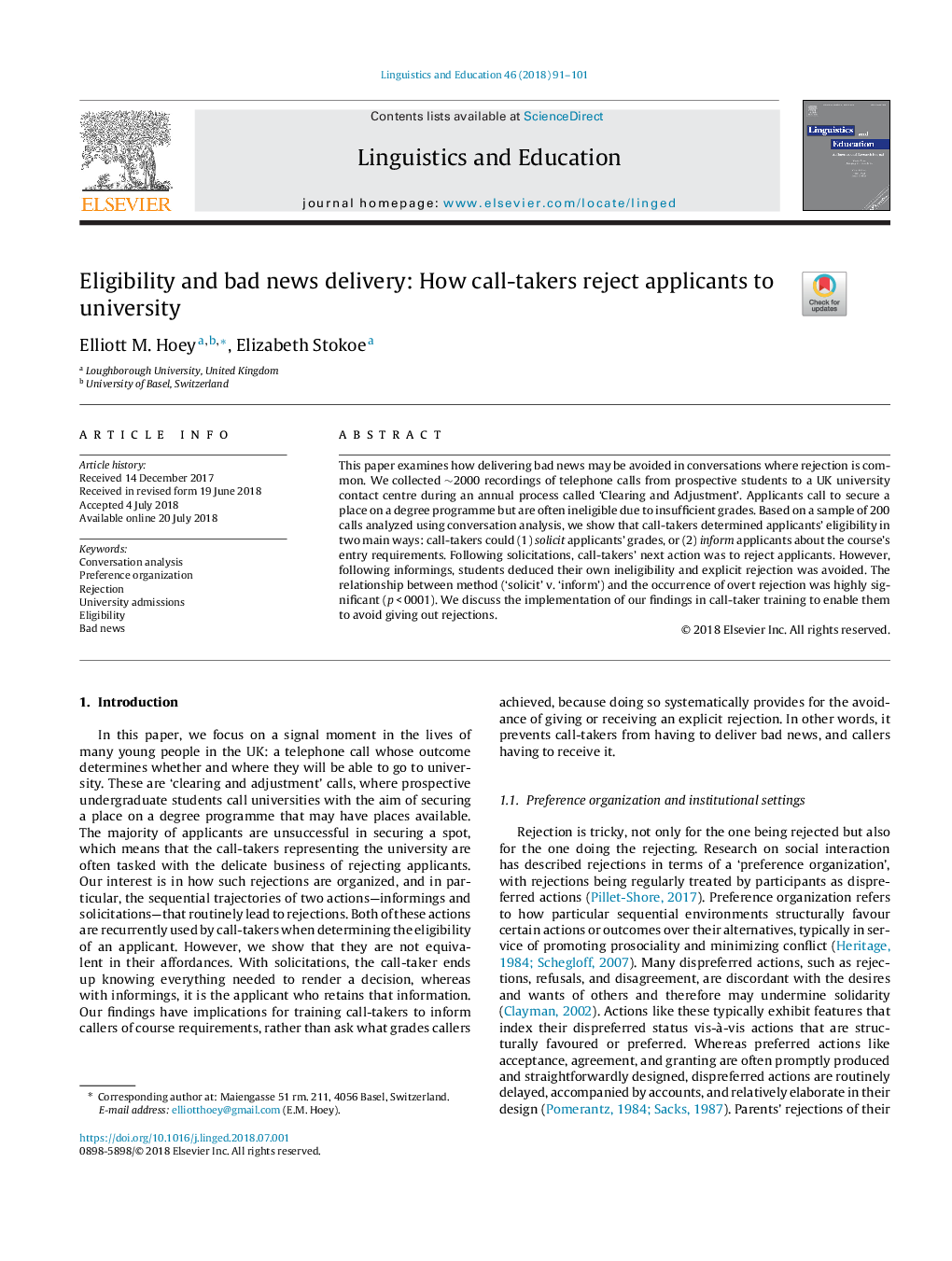| Article ID | Journal | Published Year | Pages | File Type |
|---|---|---|---|---|
| 6845894 | Linguistics and Education | 2018 | 11 Pages |
Abstract
This paper examines how delivering bad news may be avoided in conversations where rejection is common. We collected â¼2000 recordings of telephone calls from prospective students to a UK university contact centre during an annual process called 'Clearing and Adjustment'. Applicants call to secure a place on a degree programme but are often ineligible due to insufficient grades. Based on a sample of 200 calls analyzed using conversation analysis, we show that call-takers determined applicants' eligibility in two main ways: call-takers could (1) solicit applicants' grades, or (2) inform applicants about the course's entry requirements. Following solicitations, call-takers' next action was to reject applicants. However, following informings, students deduced their own ineligibility and explicit rejection was avoided. The relationship between method ('solicit' v. 'inform') and the occurrence of overt rejection was highly significant (p < 0001). We discuss the implementation of our findings in call-taker training to enable them to avoid giving out rejections.
Related Topics
Social Sciences and Humanities
Arts and Humanities
Language and Linguistics
Authors
Elliott M. Hoey, Elizabeth Stokoe,
